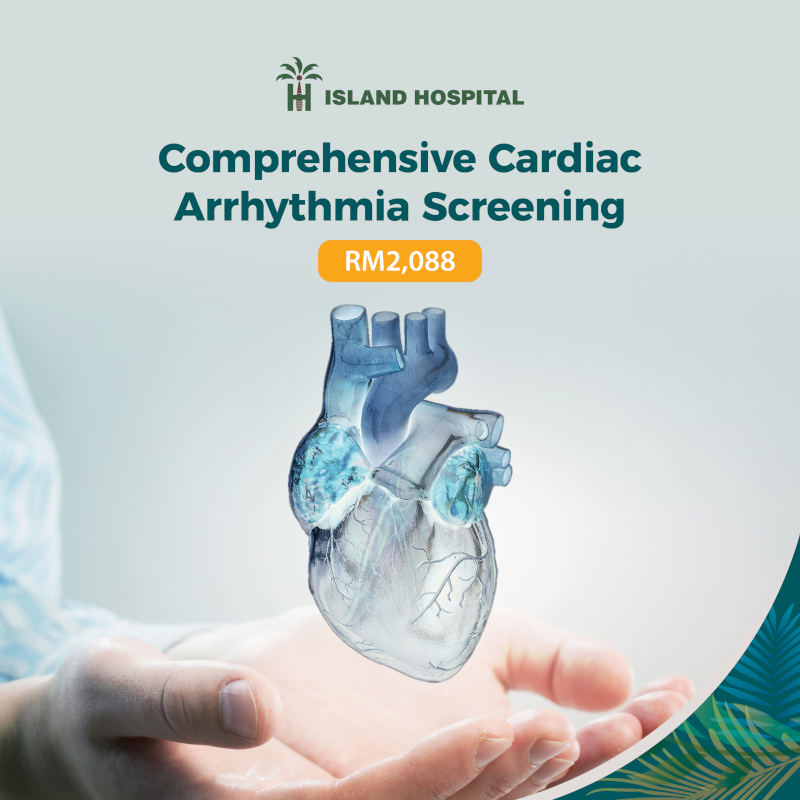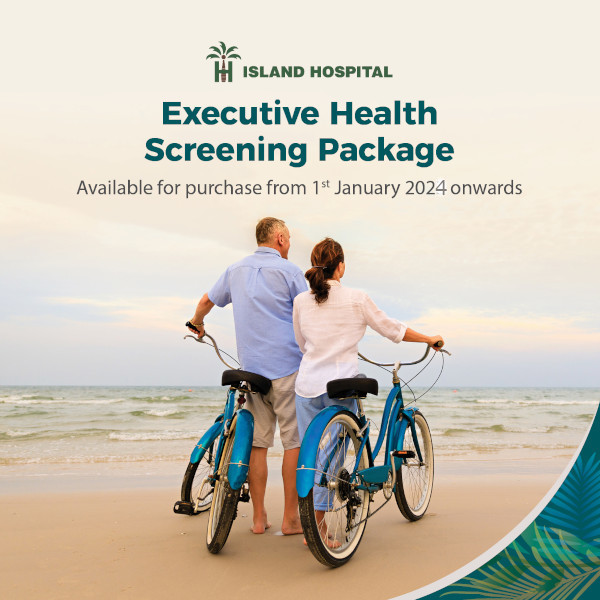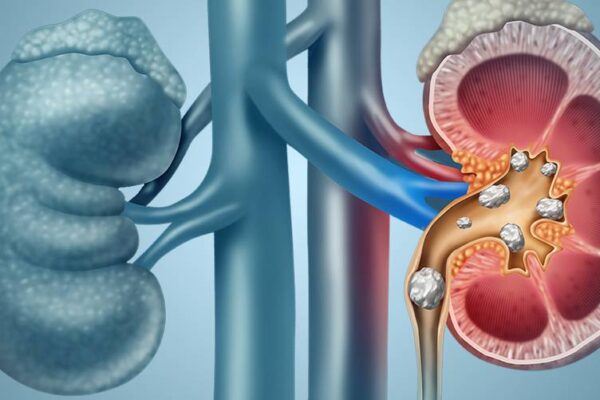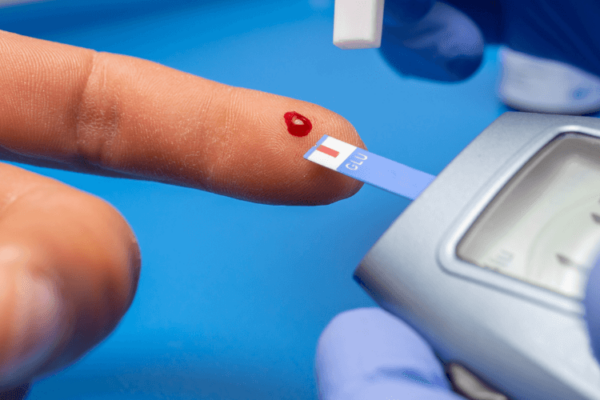
30 Apr 8 Common Health Screening Myths: Debunked For Better Health
8 Common Health Screening Myths: Debunked For Better Health
By Island Hospital | April 30, 2025 08:00:00 AM
“Health screenings are always accurate”, “Early detection guarantees a cure”, “Skipping screenings saves you from unnecessary worry”.
You’ve likely encountered these statements, but are they fact or fiction?
When it comes to your health, misinformation can lead to critical misunderstandings and potentially harmful decisions.
The following FAQ dissects 8 common claims about health screenings, providing expert-backed clarity to empower your healthcare choices.
Let’s cut through the noise to deliver the truth and ensure that you’re well-informed and confident in the management of your well-being.
1. I feel perfectly healthy. Why do I need a health screening?
It’s great that you feel perfectly healthy, but it doesn’t always mean you’re completely free from potential health issues.
Even when you feel your best, many serious health conditions, like high blood pressure, type-2 diabetes, or certain cancers (e.g. thyroid cancer, cervical cancer, and ovarian cancer), can develop without noticeable symptoms in the early stages.
This means you can feel perfectly healthy while a disease is silently progressing.
Health screenings provide a baseline of your health and are designed to detect these asymptomatic diseases early, allowing for timely intervention and significantly improving treatment outcomes before they become serious.
Results from a screening test can also provide valuable information about your overall health and allow you to make informed decisions about your lifestyle, diet, and exercise habits.
Preventative care is not just about addressing existing problems; it’s about safeguarding your future health.
2. Health screenings seem expensive. I’m not sure if I can justify the cost when I feel fine.
While the initial cost of a health screening might seem significant, consider the long-term financial implications of untreated conditions.
Undiagnosed diseases can lead to complex and costly treatments, hospitalizations, and even lost productivity.
Comprehensive health screening packages often provide a cost-effective way to assess your overall health and identify potential issues before they escalate.
Let’s take a simple example of a cost-benefit breakdown for a colon screening test in reference to your car. You can get it checked regularly for small problems, or you can wait until it breaks down completely.
- The “Small Check-Up” Cost (Screening)
Think of this as the car’s regular service. It’s the cost of getting the colonoscopy done. Let’s say it’s around RM 1,000 (like getting a good car service). - The “Big Breakdown” Costs (If You Skip Screening)
Skipping a health screening and finding out you have a serious illness too late is like driving your car until the engine explodes.
Suddenly, you’re hit with a massive bill – think RM 50,000 or more for emergency repairs (hospital bills). And that’s not all.
You might need years of expensive medication, costing you another estimate of RM 10,000 every year.
Therefore, early health checks save money and make treatment easier with one less matter to worry about. A small check-up cost now prevents much bigger expenses and health problems later.
3. My cholesterol levels are normal. Does that mean my heart is completely healthy, and I can skip further health screenings?
“Normal cholesterol levels are a good indicator, but they don’t provide a complete picture of your cardiovascular health,” says Dr. Lee Tjen Jhung, Island Hospital’s Cardiologist.
“It is only one of the multiple variables that can lead to heart disease.”
According to Dr. Lee, while maintaining normal cholesterol levels lowers your risk, it does not guarantee that you won’t develop heart disease. Other factors such as genetics, age, and gender, can still increase your risk of this disease.
That’s why he recommends a comprehensive heart check up every year.
Interested to learn more? Watch Dr. Lee’s three-part series on heart check up myths.

For cardiac screening, Island Hospital offers comprehensive cardiac screening packages to assess your heart health. This package includes a range of tests and consultations with specialists to provide a thorough understanding of your cardiovascular well-being.
Make medical travel simple and stress-free. This article on medical tourism at Island Hospital has all the details you need!
4. Why is it considered a “myth” that earlier detection always equals better outcomes?
Simply detecting diseases earlier does not automatically translate to improved patient outcomes, challenging the common belief that “earlier is always better.”
Some conditions, like certain slow-growing cancers, may be detected early but don’t necessarily lead to improved survival rates.
For instance, screening programs, as seen with melanoma and neuroblastoma, can increase early diagnosis without reducing the occurrence of later-stage disease or mortality.
Increased screening, exemplified by thyroid cancer in South Korea, leads to overdiagnosis and unnecessary treatment, causing harm without improving survival rates.
The complexity of disease progression means that screening benefits must be weighed against potential risks. Consult your doctor on whether screening is necessary or not.
5. Is it true that a health screening once every three years is sufficient?
The frequency of health screenings depends on various factors, including your age, family history, lifestyle, and individual risk factors.
Although some guidelines suggest screenings every few years for certain conditions such as cholesterol checks, other conditions like blood sugar or blood pressure may require more frequent monitoring.
Here’s an example of a general guideline for cholesterol checks for different age groups:
| Children & adolescents (9 - 11 years) | At least once |
| Healthy adults | Every 4-6 years |
| Adults with risk factors (family history, diabetes, heart disease) | Every 1-2 years |
| Adults with heart disease | Annually |
| Individuals on cholesterol-lowering medication | As recommended by doctor |
To help you stay your healthiest, Island Hospital encourages personalized screening schedules. We encourage you to have a conversation with your healthcare provider to discover the most suitable screening frequency for you.
6. I’m really nervous about getting a screening. I’ve heard they can be painful, and I’m scared of needles. Also, what if they find something terrible?
It’s completely normal to feel anxious about health screenings. Many people share your concerns about discomfort and the fear of the unknown. On the topic of discomfort, most screenings are designed to be minimally invasive.
Many medical professionals, such as nurses, perform blood draws very often, and are very good at it. Although needles are used, they work to make the process as fast, and comfortable as possible. Other screenings, like ultrasounds or MRIs, are non-invasive.
As for the fear of what might be found, remember that early detection is often the key to successful treatment as knowing your health status empowers you to take control. If something is found, you’ll have the advantage of early intervention. If nothing is found, you’ll gain valuable peace of mind.
Discuss your anxieties with the healthcare professionals performing the screening. They can explain each step, address your concerns, and help you feel more comfortable. Open communication is key to a smoother experience.
Thinking about a health screening can sometimes feel a bit overwhelming. To help you feel more comfortable and informed, check out our health screening process at Island Hospital.
7. I’ve heard screening results can be inaccurate. Why should I trust them?
It’s true that no medical test is 100% accurate. Screenings can sometimes produce false positives (indicating a problem when there isn’t one) or false negatives (missing a problem that exists).
However, healthcare professionals use rigorous quality control measures, standardized procedures, and advanced technology to minimize these errors.
Think of health screenings as a first line of defense. They highlight potential areas of concern that warrant further investigation. If a screening result is abnormal, additional diagnostic tests are conducted to confirm or rule out a condition. These follow-up tests are more specific and accurate.
Essentially, screenings provide valuable information, and while they’re not perfect, they’re a crucial tool for early detection and preventative care.

If you’re looking for a more detailed understanding of your health, Island Hospital offers an Executive Health Screening package.
It’s a gentle and thorough assessment covering many important areas, including the heart, kidney, liver, and more. A physician consultation is also included, allowing you to discuss your results and any questions you might have.
8. I was cleared before. Why do I need to go for health screenings again?
It’s excellent news that you were cleared before! However, our bodies are always changing, and health isn’t something that always stays exactly the same. Things like age, lifestyle, or even the environment around us can have an impact over time.
Think of health screenings as a kind of gentle check-in for your well-being, like a regular tune-up. They help us keep an eye on things, because sometimes changes happen very gradually and may not be as prominent or even symptomless.
Therefore, keeping up with these screenings enables you and your healthcare professional to work together in noticing any small shifts and make sure they’re taking the best possible care of you. It’s really about being proactive and supporting your health in the long run.
Unlock Peace of Mind: Get Screened and Know Your Health
Discover a clearer path to your best health. Island Hospital provides thorough health screening packages tailored to your needs, so you can nurture your well-being with confidence.
If you’re wondering where to begin, or have any questions at all, we’re here to help! Schedule a consultation and let’s explore your health together.






